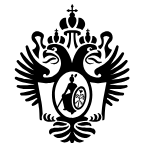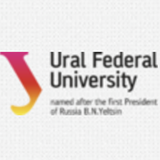Introduction
Russian Mendeleev University of Chemical Technology is a famous Russian higher chemical engineering school. It is also a world-renowned professional school for cultivating senior talents in chemistry and chemical engineering. It is a research center in Russia in chemistry and chemical engineering. It can complete process research on organic chemistry, inorganic chemistry, silicates and composite materials, research on physical chemistry and chemical process control theory, and development of new materials.
Overview
Student size: As of 2020, the school has a total of about 9,000 students, including about 800 foreign students. These students come from China, CIS countries, Myanmar, Iraq, India, the United States, Europe and Africa and other countries and regions.
Faculty: The school has 700 teachers, including 35 academicians and corresponding academicians of the Russian Academy of Sciences, 115 doctors of science, and 550 doctors.
History and establishment time
The history of the school can be traced back to the Moscow Industrial School in 1898, which was renamed the Moscow Chemical Technology School in 1918. It was named after the famous Russian chemist Mendeleev in 1920. The Moscow United Institute of Chemical Technology was established in the early 1930s. After the disintegration of the Soviet Union In 1992, the Moscow Institute of Chemical Technology was renamed the Russian Mendeleev University of Chemical Technology, and in 2015 it was awarded the status of a Russian national higher education institution.
School Strength
Teaching Quality: It provides undergraduate, expert, master, and doctoral education courses at multiple levels, with a wide range of majors, covering chemical engineering, biotechnology, chemical pharmaceutical technology, industrial ecology, modern energy, and nanotechnology. Its chemical engineering major ranks 251st in the world, and its chemistry major ranks 301st in the world. The school focuses on practical teaching, cultivates students' practical operation ability and innovative thinking, and enables students to better adapt to the needs of future work.
Scientific research results: As an important research center in the field of chemical technology in Russia, the school has carried out in-depth research in organic chemistry, inorganic chemistry, physical chemistry, chemical process control theory, etc., and has achieved a series of important scientific research results, making important contributions to the development of the Russian chemical industry. In 2020, the university carried out 202 research projects and received 40 grants from the Russian Foundation for Basic Research and 9 grants from the Russian Science Foundation.
International Exchange: The school actively participates in international cooperation and has signed more than 120 cooperation agreements with universities and companies in more than 35 countries around the world. The school also has an International Chemistry Education Center of UNESCO, and invites foreign experts to cooperate in basic and applied chemistry, chemical engineering, biochemical engineering, environmental protection and other fields.
Nature of the institution
Public research university.
Educational philosophy
Committed to cultivating senior professionals in the fields of chemistry and chemical engineering with innovative spirit, practical ability and social responsibility, focusing on the cultivation of students' comprehensive qualities, so that students can master professional knowledge while having good communication skills, teamwork ability and international vision, and can play an important role in chemistry, chemical engineering and related fields and contribute to social development.
Key laboratories and disciplines
Key laboratories: In 2018, the school established the Mendeleev Engineering Center under the national "Industrial Development and Improving Competitiveness" plan. The center has multiple laboratories and scientific research equipment. In addition, the Tushino campus is preparing to create an innovative technology center called "Mendeleev Valley", which was approved by the government in 2019.
Key disciplines: Chemical engineering, chemistry, biotechnology, materials science and engineering, environmental science and engineering and other disciplines are the key disciplines of the school. They have achieved remarkable results in teaching and scientific research, and have a high academic level and international influence.
Department
The school has a total of 13 departments, 5 colleges, and 50 teaching and research offices, including the Department of Inorganic Material Technology, the Department of Organic Material Technology, the Department of Silicon Products Chemical Engineering, the Department of Polymer Chemical Engineering, the Department of Engineering Physical Chemistry, the Department of Chemical Engineering, the Department of Chemical Production Process Cybernetics, the Department of Ecological Engineering, the Department of Economics, the Department of Chemical Pharmacy, etc. In addition, there are also the Department of Advanced Chemistry of the Russian Academy of Sciences, the Department of Natural Sciences, the Department of Petrochemistry and Polymer Materials, the School of Humanities, etc.
Ranking
2024 QS World University Rankings: 1201st.
2024 TIMES World University Rankings: 1501st.
2023 US NEWS World University Ranking: 2209th.
Expenses
Tuition fees: Preparatory course: 1200 USD, undergraduate, specialist, master’s: 1500 USD, postgraduate: 2000 USD, PhD: 2500 USD.
Accommodation: about 20 USD/month.
Campus
Teaching facilities: Tushino complex is located near the Sходненская metro station. Construction started in 2004 with an investment of 800 million rubles. It is one of the largest educational buildings in Russia. The total area of the complex is 27,000 square meters and can accommodate 1,500 people. It has 57 laboratories, 2 auditoriums, classrooms, etc. The Central Chemical Library is close to the Baumanaskaya metro station. In 2019, a large number of library materials were moved to the Tushino complex.
Campus environment: The campus is close to the Pelennernaia metro station. The campus includes 3 dormitory buildings with a total of 758 dormitories, each of which can accommodate 5 people. It consists of 2 rooms, 1 bathroom and 1 shower. Each floor is equipped with a public kitchen. There are also gyms, cafes and libraries in the dormitory buildings. In addition, the school also has branches, including the New Moscow Institute of Russian Chemical University and the Tashkent Branch of Mendeleev Chemical University.
-

Peter the Great St.Petersburg Polytechnic University
-

Moscow State University M. V. Lomonosov
-

Bauman Moscow State Technical University
-

St. Petersburg State University
-

Tomsk State University
-

Peoples' Friendship University of Russia
-

Don State Technical University
-

Ural Federal University
-

Moscow Institute of Physics and Technology
-

Kazan Federal University
-

Mesoamerican University
-

Istmo University
-

Mariano Galvez University of Guatemala
-

Regional University of Guatemala
-

Galileo University
-

Francisco Marroquín University
-

Rafael Landívar University
-

University of the Valley of Guatemala
-

University of San Carlos of Guatemala
-

Technological Institute of Tlaxcala Plateau
-

Golfo University
-

Technological University of South Sonora
-

Technological University of Huejotzingo
-

Tizimín Institute of Technology
-

Chilpancingo Institute of Technology

